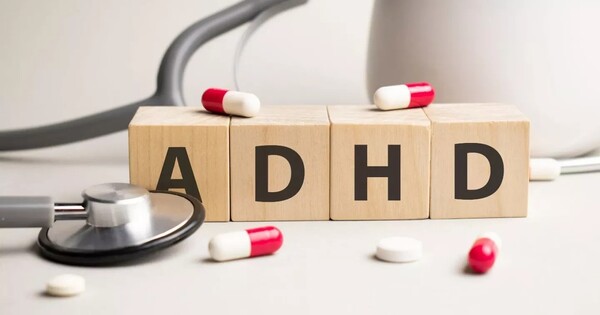Young adults who were prescribed stimulant medications for attention-deficit/hyperactivity disorder (ADHD) were significantly more likely to develop cardiomyopathy (weakened heart muscle) than those who were not prescribed stimulants, according to a study presented at the American College of Cardiology’s Annual Scientific Session.
The study discovered that those who were administered stimulants such as Adderall and Ritalin were 17% more likely to have cardiomyopathy at one year and 57% more likely to have cardiomyopathy at eight years than those who did not take these medications. Cardiomyopathy is a condition in which structural abnormalities in the heart muscle diminish its ability to pump. It can cause a person to tire easily and impair their ability to accomplish daily duties, and it frequently worsens with time.
However, researchers said that the overall risk of cardiomyopathy remained relatively low even when stimulants were used long-term. They said the findings do not necessarily point to a need for clinicians to change their approach to screening patients or prescribing stimulants.
The longer you leave patients on these medications, the more likely they are to develop cardiomyopathy, but the risk of that is very low. I don’t think this is a reason to stop prescribing these medications. There’s very little increased risk of these medications over the long term; it’s a real risk, but it’s small.
Pauline Gerard
“The longer you leave patients on these medications, the more likely they are to develop cardiomyopathy, but the risk of that is very low,” said Pauline Gerard, a second-year medical student at the University of Colorado School of Medicine in Aurora, Colorado, and the study’s lead author. “I don’t think this is a reason to stop prescribing these medications. There’s very little increased risk of these medications over the long term; it’s a real risk, but it’s small.”
ADHD is one of the most common neurodevelopmental disorders in children, affecting approximately one out of every ten American children aged three to seventeen, and can last into adulthood. It is often treated with behavioral treatment first, followed by stimulant or non-stimulant drugs to assist manage behaviors that interfere with everyday life and relationships. Stimulant medicines can raise blood pressure by making the heart pulse quicker and with more force.
Most previous studies assessing the safety of stimulant medications have focused on the first year or two of use and found no evidence of harm to the heart. Since many patients are prescribed these medications in early childhood and continue taking them into adulthood, this new study was designed to assess their potential to cause harm over a longer period of time, Gerard said.

Using the TriNetX research database that includes information from about 80 hospitals across the U.S., researchers analyzed data from people diagnosed with ADHD between 20-40 years of age. Individuals with the presence or absence of a prescription for stimulant medications along with rates of cardiomyopathy that could potentially be linked to stimulant use were included. Those with heart damage caused by other known factors, such as cancer treatments, were excluded.
For the study, the researchers compared each person who had been administered stimulants with someone who had not been prescribed stimulants but was as similar as feasible in other ways, such as age, gender, and other health issues. Overall, 12,759 pairings were generated and tracked for at least ten years. People taken stimulants were shown to be considerably more likely to develop cardiomyopathy across the 10-year follow-up period, with the gap widening each year except for the last two, when it reduced slightly.
Despite the significant gap, the overall prevalence of cardiomyopathy was still quite low in both groups. After being prescribed stimulants for 10 years, 0.72% (less than three-quarters of one percent) of patients developed cardiomyopathy, compared with 0.53% (a little over half of one percent) among those who were not prescribed stimulants.
To put the numbers in their proper perspective, Gerard stated, “You can have almost 2,000 patients on these medications for a year and you might only cause one of them to have a cardiomyopathy that they otherwise would not have had, but if you leave them on it for 10 years, 1 in 500 will have that happen.”
At these levels, researchers stated that the findings does not support rigorous cardiovascular risk testing before prescription stimulants, as the possible benefits must be considered against the dangers and costs. They propose that additional research could assist identify subgroups of people at higher risk who could benefit from future screening technologies.
















